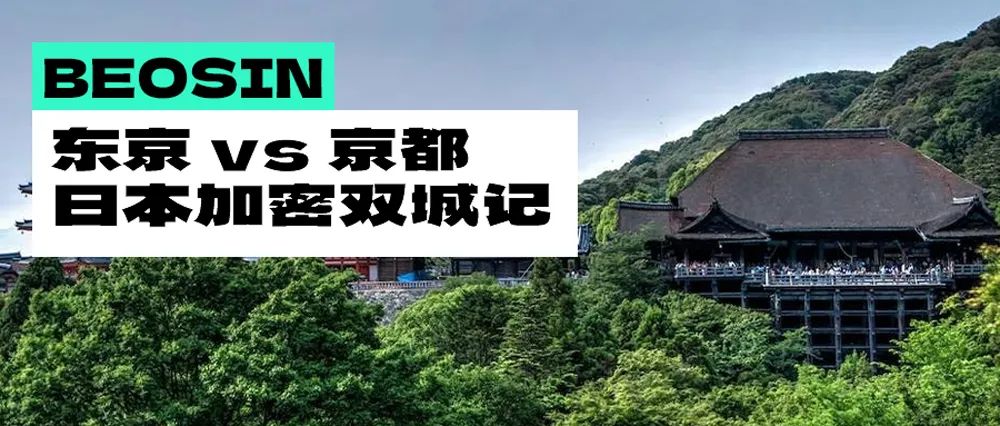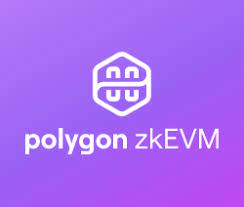Tokyo and Kyoto, the rising encrypted ‘twin stars
Tokyo and Kyoto, the rising 'twin stars' of encryptionAuthor: Beosin Donny, Eaton, Dorit
Tokyo and Kyoto are the two most representative cities in Japan.
Tokyo is the capital of Japan. It is the center of politics, economy, education, and culture in Japan, as well as an important hub for international exchange and innovation. Most of Japan’s Web3 encryption organizations and active VCs are located in this prosperous city.
Kyoto has a long history and rich cultural heritage. With its ancient charm, delicacy, and tranquility, Kyoto, despite its subtle and restrained aesthetics, has become lively again because of encryption.
- a16z In-Depth Analysis What New Gameplays Will AI Create?
- Another animal coin gains popularity, this time it’s the real version of the on-chain hamster race Hamsters.gg.
- LianGuai Daily | Google Cloud is planning more Web3-centered products; Celsius reaches a key settlement, customers may receive compensation by the end of this year.
In an era where technological progress is shaping the future economy of countries around the world, Japan is taking a strategic leap towards the Web3 revolution. Realizing the transformative potential of blockchain technology, cryptocurrencies, and decentralized internet, Japan is working together to put Tokyo and Kyoto at the forefront of this digital revolution.

Tokyo vs Kyoto, the Crypto Twin Cities of Japan
In late June of this year, the largest international cryptocurrency summit in Japan, IVS Crypto 2023, was held in Kyoto. Many well-known investment institutions set up booths at the venue to connect with emerging Web3 startups from around the world. This made Kyoto, the ancient capital, become active again because of encryption.

IVS Crypto 2023 Conference
During the three-day conference, there were also many activities with Japanese characteristics. Among them, the Web3 Shining Golden LianGuaivilion sponsored by Beosin was held at the Golden Pavilion on June 28, successfully attracting many local Japanese teams to participate.
And the “Web3 GEISHA ROOFTOP LianGuaiRTY” high-end cocktail party held by Beosin in Kyoto city that evening provided an important platform for international blockchain project parties and investors to communicate. We also saw the perfect integration of tradition and innovation in Kyoto on this night.
Beosin BD representative at the Kyoto event
After the successful IVS Crypto event in Kyoto, Tokyo will also host the WebX Conference, the first large-scale international blockchain summit in the second half of this year, on July 25-26.
This conference aims to bridge the gap between Web2 and Web3, Japanese and English, Japan and other regions of the world. At that time, top Web3 entrepreneurs, investors, and developers from around the world will gather to discuss how to transform blockchain and other technologies.
Centralized technology is being introduced into society.

It is worth mentioning that Beosin has reached a strategic cooperation with Cryptogram Venture (CGV), the organizer of the second Tokyo Web3 Summer Hackathon. Beosin will provide free authorization to use the Beosin VaaS smart contract formal verification platform and 30 minutes of on-site and remote guidance for all projects participating in the Tokyo Web3 Summer Hackathon. This cooperation aims to provide security support for blockchain projects and developers worldwide, and promote the development and application of blockchain technology.
Web3 encryption agencies that have “landed” in Tokyo and Kyoto
It can be seen that cities in Japan, such as Tokyo and Kyoto, are increasingly welcoming Web3.
For example, Sony Network Communications, a subsidiary of Sony Group, recently collaborated with Astar Network to launch a Web3 incubation program. This program is used to incubate projects related to the practicality of NFTs and decentralized autonomous organizations (DAOs), with the aim of exploring how blockchain technology can solve various problems in the industry.
Similarly, automotive giant Toyota is also studying use cases for blockchain technology. In early April, the company held a comprehensive Web3 hackathon on Astar Network to help Toyota develop more efficient team management strategies and optimize its business decision-making processes. Regarding these developments, Sota Watanabe, the founder of Astar Network, said:
“Many Japanese companies, especially large companies such as Toyota and Sony, want to work on Web3. I think the reason is simple. We completely missed the Web2 revolution, so Web3 is the next major opportunity for the Japanese economy.”
In the Tokyo and Kyoto areas, we also see some growing Web3 encryption agencies. Here are some representative agencies:
Web3 companies/organizations in Tokyo
1. HashPort
HashPort Group was established in 2018 with the vision of digitalizing assets and has accumulated a wealth of achievements in blockchain technology. HashPort currently has three major businesses: HashPort, which provides blockchain technology consulting and solutions; HashLianGuailette, which provides NFT-related technical support; and HashBank, which provides financial infrastructure services. In April 2023, HashPort completed a Series C financing of over $8.9 million.
2. KEKKAI
KEKKAI is a startup that focuses on improving the security of encrypted asset transactions. Although KEKKAI was officially established in early 2023, its wallet security plugin was officially launched in December 2022. In February 2023, KEKKAI completed a pre-seed round financing of 50 million yen, with Skyland Ventures as the investor. This financing will be used to improve product functionality and expand security business.
3. Skyland Ventures
Skyland Ventures is a relatively active local cryptocurrency fund in Japan. It has invested in KEKKAI and GoPlus in the blockchain security track, Orbiter Finance in the cross-chain track, Taiko in Ethereum Layer2, NFT data analysis platform NFTGO, and Wallchain, a provider of anti-MEV solutions, in the infrastructure field. In April 2023, Skyland announced that its fourth fund had raised 5 billion yen and established a seed fund dedicated to Web3 investment.
4. MZ Web3 Fund
MZ Web3 Fund, established by former Zexi You, known as the “Japanese Musk,” focuses on investing in Web3 projects and is the most active local crypto fund in Japan. MZ Web3 Fund has invested in 24 early-stage projects in the Web3 field, including decentralized storage project SINSO, payment tools Slash and Transak, development community WEB3DEV, game public chain Oasys, and Web3 user growth platform Aki Network. MZ Web3 Fund will provide community resources from MZ Club and MZ DAO to the invested projects, helping them expand rapidly in the Japanese market.
Web3 Enterprises/Organizations in Kyoto
1. QURAS
Founded in 2017, QURAS has a branch in Kyoto, Japan, and is dedicated to providing privacy-protecting blockchain solutions for enterprise customers. Application scenarios include digital asset trading, supply chain management, healthcare, and financial services. In 2018, QURAS also launched the mobile wallet Quras Wallet and collaborated with multiple exchanges such as Uniswap, bithumb, and Mooniswap. In 2019, QURAS completed a Series A financing of $16 million, with participation from Roark Fund, SEB Venture Capital, and other institutions.
2. SORAMITSU
SORAMITSU, founded in 2016, focuses on the research and development of blockchain technology and aims to provide high-quality blockchain solutions for enterprises, governments, universities, and communities. SORAMITSU has many well-recognized projects in the cryptocurrency field, including Bakong and Hyperledger Iroha. In 2016, SORAMITSU developed the project Hyperledger Iroha and contributed it to the Hyperledger project of the Linux Foundation, providing assistance in managing digital assets for enterprises and financial institutions.
3. NEO KYOTO NFT ARTs
NEO KYOTO NFT ARTs is a Web3 education project jointly planned by Huagole Holdings Co., Ltd. and SMBC Nikko Securities Inc. The project showcases and sells NFT art created by students in Kyoto to represent the future spaces and contents of Kyoto. A portion of the sales revenue will be donated to the City of Kyoto for educational purposes. The project aims to establish a creative ecosystem that integrates NFT art with urban development.
4. Bar Krypto
Bar Krypto is a cryptocurrency bar in Kyoto that provides a place for digital nomads to passionately discuss Web3. Currently, Bar Krypto adopts a membership system where customers can purchase their membership NFT on OpenSea to become a member. Members can name cocktails and participate in basement DIY renovations and event planning.
Hacker Ghosts that Cannot Be Bypassed in the Japanese Crypto Field
Japan was once a pioneer in the cryptocurrency field but quickly fell victim to hacker attacks.
In 2014, the Japanese exchange Mt. Gox was attacked by hackers. Then, in early 2018, hackers launched another attack, stealing over $500 million from the Japanese exchange Coincheck, severely impeding the development of crypto in Japan.
These two hacking incidents have greatly reminded regulators. After these hacking incidents, Japan has required the separation of customer assets and exchange assets, and most exchange assets are stored in cold wallets.
Therefore, when FTX collapsed this year, Japan’s regulatory approach demonstrated its advantage.
Ryosuke Ushida, Chief Fintech Officer of the Financial Services Agency, which regulates cryptocurrencies, said, “FTX JaLianGuain’s Japanese customer assets are likely to be returned without being significantly affected by the global bankruptcy application under US Chapter 11 bankruptcy law.” It can be seen that Japan’s cryptocurrency asset regulation policy has played a significant role in protecting the assets of local Web3 users.
Now, Beosin is also cooperating closely with Japanese Web3 companies such as KEKKAI and Terminal3. Beosin will provide pre-launch code security audits, security risk monitoring during project operation, early warning and blocking, stolen virtual currency asset recovery, secure compliance KYT/AML, and other “one-stop” blockchain security products and services for Japanese Web3 institutions, helping them defend against hacker attacks.

Japan Leading the Way in Cryptocurrency Asset Regulation
In 2016, Japan revised the Payment Services Act and the Funds Settlement Act, and formally established the Financial Services Agency in 2017, clarifying the legal status of cryptocurrencies. On the one hand, cryptocurrencies are regarded as “cryptographic assets” in the Payment Services Act. Operators engaged in the business of buying, selling, or intermediating in cryptographic assets (as well as managing cryptographic assets for the benefit of others) must register as cryptocurrency asset trading services.
On the other hand, the Financial Services Agency, the financial regulatory authority of Japan, regulates cryptocurrency exchanges through the Financial Instruments and Exchange Act (FIEA). Transferrable investment interests of blockchain-based limited liability partnerships and other similar entities are regarded as securities (i.e., ordinary partnership securities transferred in a non-electronic manner). Under the FIEA, businesses providing or intermediating derivative instruments related to cryptographic assets fall under the category 1 financial instruments business. Such businesses constitute investment advisory business or investment management business and must be registered under the FIEA.
Regarding stablecoins, the Japanese government considers whether such stablecoins can be exchanged for legal tender. Stablecoins may be classified as cryptographic assets or payment methods in remittances. In addition, as NFTs are currently not considered to have payment functions, no specific regulations have been established under the current regulatory framework. However, the Financial Services Agency has included the establishment of a regulatory framework for NFTs in its agenda.
Nevertheless, Japan is still in the process of trial and error and adjustment in the regulation of cryptocurrency assets. With the development of the cryptocurrency field, related policies will gradually evolve.
Since 2019, blockchain security company Beosin has established a strategic partnership with Japanese blockchain enterprise HashPort. The two parties mainly cooperate in the security audit of chain platforms and smart contracts, compliance assessment, etc. The blockchain project compliance assessment report issued by Beosin is currently one of the important reference materials for Japanese regulatory authorities in assessing project compliance. During this period, Beosin has continuously provided professional and comprehensive security technical support, enhancing the security and compliance of Japanese blockchain enterprises.
Beosin aims to help Japanese virtual asset service providers establish secure and compliant services, meet Japanese regulatory requirements, reduce clients’ compliance costs, assist clients in building comprehensive products and services, and provide security guarantees for clients’ business growth. At the same time, it provides powerful services and product combinations (such as KYT products) in Japan, which can help users reduce compliance risks, improve clients’ ability to identify risky transactions, strengthen clients’ tracking and analysis capabilities for suspicious addresses, and help clients build secure risk control systems that comply with local regulations.

In April 2023, the Web 3.0 project team of the ruling party in Japan released a white paper proposing recommendations to promote the development of the Japanese crypto industry. In June 2023, the revised bill on fund settlement in Japan was passed by the House of Councillors, making it the first country in the world to enact a stablecoin bill.
Akihisa Shiozaki, the Secretary-General of the project team, pointed out in a recent interview: “The cryptocurrency industry has always been driven by early adopters, but it will now shift to mass adoption.” He pointed out that large Japanese companies have begun to enter the market, and mobile operator NTT Docomo recently pledged to invest up to 600 billion yen (4 billion US dollars) in Web3 infrastructure. Moreover, large financial institutions are also seeking to issue stablecoins to digitize the national economy.
Conclusion
It can be seen that Japan’s embrace of cryptocurrency and Web3 initiatives is clearly a strategic move aimed at injecting new vitality into the economy. If Japan wants to leverage the emergence of Web3 to drive new economic growth, it must overcome many obstacles. Whether it is in Tokyo or crypto-friendly cities like Kyoto, there is a need for the emergence of truly innovative Web3 companies that can showcase the potential of blockchain technology and serve as examples to inspire other Japanese entrepreneurs. On the other hand, we can also see that the country’s Web3 policies, corporate collaboration, and regulatory progress are gradually paving the way for the local development of Web3.
We will continue to update Blocking; if you have any questions or suggestions, please contact us!
Was this article helpful?
93 out of 132 found this helpful
Related articles
- Former CEO of stablecoin TUSD sues the company, claiming to have been ousted during negotiations for acquisition by Tron.
- Curve rescue the nation? A detailed explanation of how Opensea’s new Deals feature solves the liquidity problem of NFTs.
- Exclusive Interview with Xian Diyun, Acting CEO of Zhongan Bank Virtual Assets Will Become a New Growth Point
- What new things has XMTP brought to Web3 social with its partnership with Coinbase and Lens?
- Quick Look at Velodrome V2 Further Enhancing Asset Efficiency, Strengthening OP Super Chain Vision
- LianGuai Observation | Opepen’s Rekindling A Community’s Co-creation and Win-win
- LianGuai Daily | RISC Zero raises $40 million; Manta Network developer p0x labs raises $25 million.






